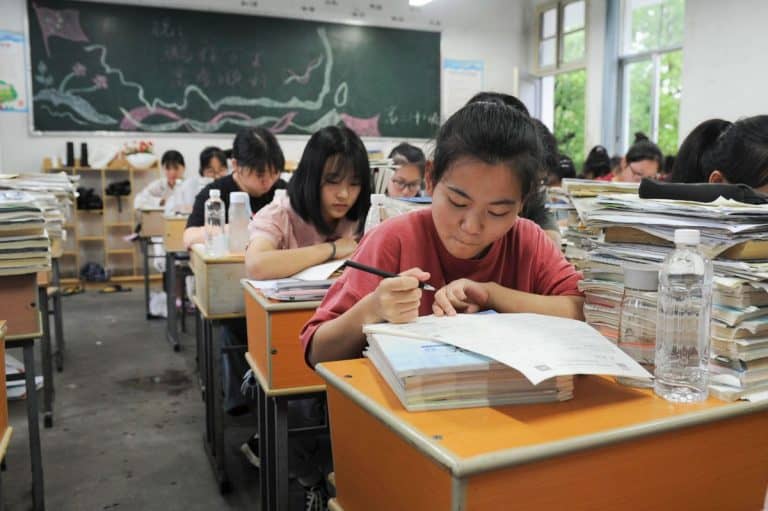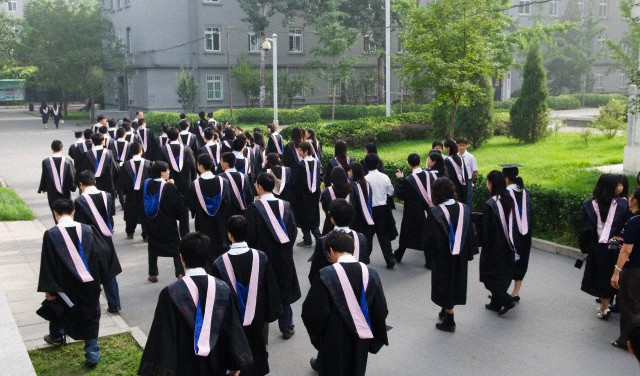English education in China, what is the future?
New regulation, english tutoring crackdown, cold war with the USA, new priorities for Chinese parents …. what is the future of english eductaion in China?

The Chinese State Council* issued the policy note referred to as the “720 policy” (initially published on the 20th July). This policy further regulates China’s private tutoring sector, including online. This blog will begin with an overview of the policy, including its implications for the online ESL industry. Then, a scenario analysis is included to show what could happen to online ESL teachers under different scenarios. The last section focuses on what online ESL teachers are capable of doing. It is important to remember that although this policy may reduce the supply of education, it does not necessarily decrease the demand for quality education.
*The Chinese State Council has an administrative function. It is responsible for drafting policies, not laws. These policies may be interpreted and applied in different ways depending on where you live.
New Legislation about education of english in China
Context
Faced with an aging population, China’s government is trying to increase birth rates through state intervention. The Central Government is hoping to increase the birth rate by increasing the state’s role in affordable housing, education and healthcare. The state demands that the public sector play a greater role in education. This restricts the role played by private enterprises in education. (See below the ‘720″ policy).
The policy’s stated goals are to create a positive environment in education, decrease parents’ anxiety, and promote holistic and healthy growth for students. This document has 16 pages. I have listed below the items that could potentially have an impact on the online ESL industry.
Reduce the ties between tutoring and the private capital sector
Register as a non-profit organization if you wish to establish training institutions in core subjects. These institutions cannot be listed on the capital markets for their initial public offering.
The impact of online ESL on the sector: This cuts the link between tutoring and private money. Investors will therefore leave the K-12 education sector.
Propose a more scientific way to use after-class time
Parents and schools should encourage children to take part in household chores, sports, reading, and other art-related activities. Although the policy doesn’t specify, parents should communicate with their children and care for their mental health. They should also help to foster a learning habit. Online classes should not exceed 30 minutes in length and must be completed by 9 pm.
The impact of online ESL on the sector: This means that there are more restrictions about when and how long online teaching can be done.
read more
Expand the use of public resources
Schools must provide after-class care to accommodate parents’ work schedules. Schools have the option to hire volunteers or outsiders to provide these services. To improve education for all, the Ministry of Education will provide online learning materials that are free and high-quality.
The impact of online ESL: This has more effect on in-person tutoring classes because some parents use these classes to provide child-minding services .
Regulate outside-school training activitie
Education materials from China should not be used by outside-school training institutions. Students’ weekend and holiday time should not be used for academic subject training. They shouldn’t hire non-Chinese citizens from outside China.
The impact of online ESL teaching: This is the article that most concerns online ESL teachers. A separate section is dedicated to scenario planning. It will discuss different scenarios and how the article can be applied.
Pre-school children’s training activities should be regulated
Online training for pre-school children is prohibited, and this includes English subject training.
The impact of the online ESL sector: This means that there will be a decrease in online English education for Chinese children under six years of age.
Implementation in China of these new regulation
Three measures have been piloted in nine cities: to reduce private tutoring in core academic subjects, to expand school offerings for after-school activities and to regulate the fees charged by private tutoring firms. These nine cities include Beijing, Shanghai and Guangzhou.
Scenario planning for online ESL teachers
The 720 policy regulates training institutes registered in mainland China. ESL teachers who work with platforms such as Qkid or Magic Ears, Qkid and DadaABC can determine their future.
According to my research at Tianyancha.com, companies like VIPKid and Qkid are registered instead of training companies. This allows for interpretation.
Some ESL teachers online are also paid by an offshore legal entity. This leaves room for interpretation. These legal entities are they subject to the “720” policy?
After reading expert analysis, I came to the conclusion that the priorities were set up to reduce the ties between tutoring and private enterprise, to limit academic subject tutoring, and to discourage repetitive cramming.
Chinese Online ESL
I do not believe that the current policy priority is to freeze the hiring of non-Chinese ESL

instructors outside China. I have notread or heard from any Chinese online ESL platform that they have been notified by the government. The policy does not specify what these platforms should do to existing teachers.
Online ESL platforms like VIPKid, which are based in China, will not be affected. Online ESL teachers can continue to teach Chinese students as normal. This is a very low chance.
Worst case scenario: Online ESL companies based in China are ordered to terminate all contracts with teachers based outside China. Online ESL teachers are forced to stop teaching Chinese students. This is also a very slim chance.
A mix of both: The most likely scenario is a gradual contraction in the online platform business model. This could result in a decrease in the hiring of ESL teachers from China and a renegotiation on the payment structure for teaching professionals. Eventually, ESL teachers may leave the sector in order to find other markets or opportunities.
The industry will need time to adjust and restructure. What can online ESL teachers do in the meantime to prepare for an uncertain future.
Keep teaching and strive to be better every class you teach. No matter what you do, the habit of striving for excellence will be with you wherever you go. Independent teaching: The path to success
This is the most rewarding, but also most challenging route. Remember that the 720 policy regulates education supply. If parents in China continue to demand quality education for their children, then who will be able to fulfill that demand. Freelance teachers may be an option to fill this gap.
To do this, a teacher must change his or her mindset to become an entrepreneur. He or she must also understand customers and set up infrastructure to allow for marketing and payments. It’s a huge step to go from being a teacher who teaches classes on a platform to becoming a teacher-entrepreneur. You will need to understand customer needs and design products. To get started, it is common to need to collaborate with multiple partners. Each small step is a step towards independence.
China tech crackdown:
Yu Minhong is the founder of China’s largest private education service firm.
New Education & Technology Group founder hosted his first live-streaming ecommerce session via ByteDance’s short video platform Douyin
Michael Yu Minhong, the CEO of Yu Minhong, reiterated the company’s plans to launch an e-commerce platform that streams live for farm products.
After Beijing’s crackdown against the country’s once-highly-flying off campus education sector, the founder, chairman, and chief executive officer of New Oriental Education & Technology Group has added live streaming e-commerce to his illustrious resume.
Chinese education authorities designed an online platform to provide free tutoring for the city’s roughly 330 000 young Chinese students amid a sweeping national overhaul of the private tutoring industry.
On Tuesday, the 59-year old education entrepreneur and often called China’s most prominent teacher hosted his first live-streaming session of e-commerce. He pitched farm products like cherries on Chinese short video platform Douyin, owned by TikTok owner ByteDance.
The document, issued by the Beijing Municipal Commission of Education, notes that the platform would offer online tutoring in forms including one-on-one tutoring and livestreaming classrooms. All middle school students in the city would be able to access the services on nine school curriculum subjects from 6 p.m. to 9 p.m. daily except weekends and holidays.
According to Huitun data, Yu sold products in excess of 4.6 million Yuan (US$721,827) when he first started live-streaming. However, some online users complained that Yu offered products that were too costly. According to Huitun data, a 2.5-kg bunch of cherries cost 299 Yuan. This is more than 15 apples which sell for 128 Yuan.
Yu also reiterated New Oriental’s plans to launch an e-commerce platform that streams live during the same session. This is part of New Oriental’s efforts to diversify operations. Yu announced last month that he plans to establish a large-scale online agricultural platform through which he will sell products from his farm with hundreds of employees who were reassigned from teaching positions.
New Oriental stated that it is not abandoning the education sector. New Oriental stated that live streaming could be used to “help farmers more, with the aim of achieving common prosperity”, referring to President Xi Jinping’s push for all citizens to have the chance to become wealthy.
The company posted that “Education was always our initial intention.”
China’s Ministry of Education ordered Monday the temporary removal of homework-help apps. These apps allow students to take photos of their homework and search online for the answers. This was in addition to strengthening regulation of China’s online tutoring industry.
The ministry stated in a statement that the online tutoring app filing process will be stopped until local educational authorities have completed reviews of the primary and secondary online tutoring schools that offer curriculum subjects.
These apps allow students to solve homework problems by uploading photos. This is because they can make students “lazy,” hinder their independent thinking, and lead to bad learning habits.
This is in keeping with China’s “double reduction” policy in education. It follows tougher regulations for private online tutoring. The market is estimated to be worth approximately 453.8 billion yuan ($71.31 trillion) according to iiMedia Research Institute.
Analysts believe that several online tutoring apps could be affected. They also have many users.
Education Startups are break down by Beijing
According to Xueyan Thinktank, Zuoyebang, an app that offers online homework help and courses, was launched in 2014.
Nearly 200 million questions were included in the question search app Xiaoyuan Souti. Each day, it solved approximately 23.47 millions questions.
A student who was taking the college entrance exam for Central China’s Hubei Province in June uploaded a photograph of a math test on Xiaoyuan Souti. This was discovered by staff. The app claimed it did not provide any search results for the student.
These apps for homework help have spoiled some students, Yan, an English teacher from North China’s Hebei Province said to the Global Times Monday.
“Some students take a picture of an English article and upload it to an app to search the answers. Yan observed that they do their homework quickly and efficiently, but fail to score well in the exams. These apps can lead to mental dependence. She said that students could lose their independent thinking ability over time.
A researcher at the National Institute of Education Sciences, said that the notice targets students who misuse these tools.
He said that the ministry is not just going to beat down the many after-school tutoring centers, but aims instead to solve them. “The demand for tutoring schools remains high and I believe there will still be opportunities.
Success can sometimes feel like an accident for a Chinese-born person in the nineteen seventies.
Today, however, the business environment is much more competitive. Although few middle-aged people quit their jobs to start their own businesses, North believed that being older had some advantages. There were many other Chinese who looked like him. In 2019, North’s cohort was ranked as the most populous five-year grouping. They ranged in age from forty to forty-nine. Many middle-aged Chinese had grown up with the 1978 reforms initiated by Deng Xiaoping’s Reform and Opening policies. They had also participated in the largest ever internal migration, which saw more than a quarter billion people move from the countryside to cities. North believed his advantage was that urban residents needed him to understand their needs as they aged. He believed elevators were one of those items.
Parents were also encouraged to invest in their children’s education by the one-child policy >> The party’s official slogan was “having one child is good.” It is still a common culture to pool family resources to support their children’s education.
Better investments, new wealth
Chinese families place education above all other areas, including real estate and retirement savings. According to the McKinsey Global Institute, the country will spend 12.5% of its total consumption growth over the next 15-years on education for people under 30.
ICEF Monitor also shows that 50% of 20-year-olds’ per capita education expenditures are spent on education. This compares to only 25% for American students. This phenomenon will not stop and will continue to grow with the rise of the Chinese middle classes.
There has been a shift in school standards and expectations
China is the most populous country on the planet, so the Chinese education system has a higher level of competition. Experts are saying that children have less time to spend with their families or friends or engage in sports and other activities. Many parents are considering sending their children abroad to expand their horizons and take advantage of the Chinese education system.
Chinese Education System: A Chance for Foreign Schools
As we have seen, Chinese parents are increasingly willing to send their children overseas to study. It is also highly regarded in China. This is why the Western education system is so attractive to Chinese parents. The Western education system has a reputation for developing creativity in students and allowing them become independent thinkers. In contrast, most Chinese students are hardworking, persistent, deep thinkers, but lacking creative spirit.
China: The country with the most students studying abroad
If we take a look at the number students who are going overseas to study, it is clear that India and China, the two largest countries in the world, are leading the charge. China is far ahead of all other countries. In 2017, China sent 928,000 international students, while India sent 332,000.
Even though this data is quite old, it can be said that it is still relevant. This shows that Chinese students still value going abroad to further their education.
Why would Chinese students choose to study abroad?
Tsinghua University, among the best universities in China
You should be aware that the majority of top universities in China are public. This means that the Chinese government provides the bulk of their funding. Although there has been a significant increase in the number of universities in China and the number of students enrolled at them, admissions to the top universities is still difficult. The only way to get into a top public university is through the Gaokao national exam.
Read more
Many students choose to study abroad to avoid the Gaokao and study at a higher-ranking university. Because of their international academic environment, some study programs are preferable to institutions abroad. Students from China who have studied abroad are more likely to be able to communicate in Chinese than their counterparts who have stayed in China.
A survey of Chinese overseas returnees found that more than 80% said they had chosen to study abroad in order to learn about other cultures and live different lifestyles. About 1/3 of respondents went abroad to improve their chances in the future job market.
Chinese parents make learning English a top priority
Learning English is essential for business today. This is why English classes are required in all Chinese schools. It has also led to an increase in private English schools and classes.
Chinese children are learning English from a young age (© Quartz)
Chinese people consider learning English to be a priority. This is why they choose to study abroad in English-speaking countries to improve their English skills.
Their resume will be enhanced if they study abroad
Parents are well aware that overseas experience can enhance the resumes of their children. While English-speaking countries like the U.S., Australia, and the U.K remain the most popular destinations for Chinese students abroad, there are many other destinations that are more popular than English-speaking countries, such as France and Spain.
Many job opportunities are available for students who study abroad
Chinese students who have graduated from a foreign country are more likely to find work abroad. Studying abroad has opened up many new opportunities for students, which allows them to live in a more luxurious environment and make more money than if staying in China. In recent years, however, this trend has changed with a growing number of Chinese students wanting to return to China following their studies.
A survey of Chinese overseas returnees found that 60% chose to return to China to spend time with their loved ones, and 42% said it was due to the country’s economic growth. Many Chinese students find Chinese companies attractive because they offer many benefits and pay competitive salaries.
The social status is determined by education
Educations from abroad, especially in America, Australia, and Europe, are thought to be more creative and innovative than Chinese counterparts. This is also part of a larger trend. Chinese people are more open to learning about culture, education, and beliefs.
China’s society is highly competitive. Education has become an important factor in determining one’s social status, and level of achievement in a society that is obsessed with the idea of ‘face. This is why international education is so important and it is associated with quality.
What are the best places to study abroad for Chinese students?
A 2020 educational survey found that the United Kingdom and the United States were preferred destinations by Chinese students and their families. The United States has lost its appeal over the past five years. However, students are more attracted to Canada and the United Kingdom, along with other Asian countries such as Japan and Singapore.
- China’s Education Market: Some Particularities
- Chinese children start school at an early age
- Children playing piano
- It is worth noting the phenomenon of “the little emperor”. The one-child rule>> resulted in two sets of grandparents, and parents who all focused their attention only on one baby. This has resulted in a whole generation of children with more money invested in their education. This has allowed the education market to grow, with entire families investing in their children’s futures from an early age. Parents will take their children to pre-classes as soon as they can talk. They will learn how to count, read stories, learn foreign languages and play instruments.
To attract Chinese students, your school’s reputation is key.
read more
Your school must be well-known and popular in order to attract Chinese students. Chinese parents spend a lot time researching Baidu to find the best schools when they begin looking for schools. Online information is more important in China than any other country. Your information must be easy to find and easily visible. You should have an excellent e-reputation, even if your school isn’t well-known. Trust is one of the most important criteria for Chinese consumers.
Study destinations are more popular in some countries than others
Chinese students are more likely to appreciate certain destinations. The United States is one of the most visited destinations in the world. Why? Why? Because American schools are the highest-ranked worldwide in terms of rankings.
Your school must be located in a safe country. Parents won’t send their children to dangerous countries. They will also prefer countries with family members, as they are more secure.
Benefits of having a Chinese community in a country
Chinese people will be attracted to your city once they have found the location of your school. Because there are many excellent schools, some cities are more popular than others. However, Chinese families prefer to live in cities with a large Chinese community and a ‘Chinatown. You will find large Chinese communities in many of the most popular cities, including San Francisco, San Francisco, Chicago, Toronto and Vancouver. Some students prefer to travel to cities without a large Chinese population to learn the language.
China’s Shools Ranking Obsession
University ranking
Ranking is a key criteria in China. If you want to attract Chinese students, your school must be among the top ranks. They will check international rankings before they start any procedure.
Chinese students do not have to pay school fees.
Many Chinese students choose to study abroad as their families are more financially secure than they were 10 or 20 years ago.
Chinese families can now afford to pay more for higher education. They want to put their money in the right place. These families can send their children overseas and money is no problem.
First, they will look for the top-ranked school. Next, they will consider school fees. Students may also be eligible for financial aid or scholarships.
How can you promote your foreign school in China?

China’s perception of itself has changed over the years. How do you capitalize on these shifting attitudes? It is important to build a positive reputation online and increase your visibility. You must be active on the internet and use the best Chinese platforms to generate student leads. The key to success is adaptability.
Online platforms for recruiting Chinese students
Baidu is your friend

Higher education institutions in China have a great opportunity to reach Chinese students by shifting to primarily online student recruitment models. China boasts an online penetration rate of 65%, with approximately 900 million internet users. China’s society embraces digital tools with greater enthusiasm than any other country. On average, users spend 3 hours per day surfing online. They will also do extensive research online about international and foreign schools.
Don’t forget, however, that China’s Great Firewall has created a unique online ecosystem for student recruitment. You must tailor your promotional campaigns to Chinese-specific platforms.
A Chinese website is needed by your school
It is essential to have a mandarin-language version of your website. A mandarin version of your website will allow you to optimize SEO for search engines. Your website must be hosted on a Chinese server (.cn) to ensure a better SEO.
To optimize search results, your website should be in Mandarin. You also need a QR code to link to your social media accounts.
As the majority of internet users in China browse via their smartphones, which now number in excess of 550 million, all sites must be optimized for mobile. Mobile content can be optimized for Wechat China, the largest social network in China (more details later).
Because you are targeting Chinese readers, the content on your site must be written in Mandarin.
When looking for ‘foreign universities’ on Baidu
You’ll discover that Search Engine Optimization (SEO), will increase your website’s rank on Baidu, and organic traffic, to help you generate more student leads. Students’ parents are often the ones making decisions, so they frequently browse Baidu results by keyword searches. 25% of the remaining results are primarily through Sogou & So.com. Search Engine Marketing (SEM), is one of the most effective tools for recruiting Chinese students.
This approach can also be completed with PPC (Pay Per Klick) ads, which appear at the top news feed. The best student prospects will reach you via the natural search results.
read more
It’s difficult to do SEO and be effective. It is better to hire an SEO agency. SEO can be very expensive and time-consuming if you don’t know how to do it.
Your academic reputation and communication on social media can be improved
China’s top social media platforms are vital to attract Chinese students. Wechat has more than 1.2 billion users and Weibo is used by over 511 millions people monthly.
Social media in China is essential
An Official Account can be linked to a microsite and allows your institution to be visible on social media. In China, an Official Account is vital. They will require a lot more information when you create your Official Account via social media platforms. This information is required by social media platforms to verify that you are the original brand, and not an impostor. This official recognition will make Chinese students more confident, and they will be more likely share your post and to subscribe to your account.
Invite Chinese students to learn more about your school via WeChat
WeChat, which was launched in 2011 by Tencent, a Chinese company, was initially a mobile messaging application. Even though there were new features, the core functionality of WeChat has remained the same. Although the platform is known as Weixin in China and rebranded in 2012 for international markets, it was still marketed under the Weixin brand. The number of users reached 1 Billion in 2018, a significant increase from 2017.
EF on WeChat
Wechat is now the most popular social media platform in China, surpassing Weibo. Wechat is expected grow even further in 2022. It is well-known for its communication services, where users can send messages and share images and videos with others, as well as voice and video calls to other users in a closed network. You can easily promote your school by creating a WeChat account. To attract Chinese students and their parents to your school, creating an H5 brochure is one of the best ways to promote it.
You can add students and parents to Wechat group chats, which allow you to answer student-related questions. These services will make you stand out among Chinese students. This communication line would normally be managed internally by a Chinese student liaison officers.
Social networks are best used to interact with potential students and parents daily, share content, and grow your network. Advertising campaigns can drive growth, and quality content leads to prospective students contacting your company. Wechat’s demographic is typically older, so it’s more important for students’ parents (the Decision Makers), who are also active on Wechat.
To learn more about H5 Brochures from WeChat, please read our complete article
Get more visibility with Weibo, the popular micro-blogging app
Weibo was launched in 2009 by Sina Corporation (Xin Lang ), a Chinese technology company. It is now one of China’s most popular social media platforms. It’s a microblogging platform that, as its name suggests, is often compared to Twitter because of its buzz potential and its short posts.
More than 130,000 companies have also joined the social microblogging network. Schools and universities should create their own Weibo official account and have their account verified. Your account will be verified and you’ll have more followers. This is proof that your account can be trusted by Chinese users.
Over 56% of Weibo users are connected to at least one brand or institution. You don’t have to be connected to Weibo to follow a brand. It can be very useful to have an official Weibo account to share content, promote your school and communicate with students.
If you want to promote your oversea education in China contact us.





